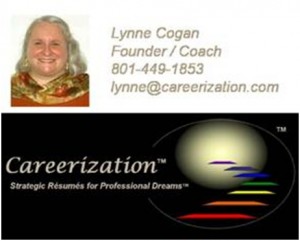In Think and Grow Rich (1937), Napoleon Hill suggested job search techniques that most people are only beginning to apply today…by Lynn Cogan.
“The internet and other technologies have greatly influenced the 21st century job search process: from the ease of researching companies, to the widespread use of networking, to customization of résumés for each position.
Although the methodologies and marketing have changed greatly in the last 74 years, the core strategies for the most successful job search campaigns have changed very little.
In 1937, in the middle of the Great Depression, a book was published that became an instant best-seller. Today it is a classic that continues to be read by millions: THINK AND GROW RICH by Napoleon Hill. It includes seven points for finding the exact job you want. These will seem familiar to those who read these articles regularly:
“First. Decide EXACTLY what kind of a job you want. If the job doesn’t already exist, perhaps you can create it.
“Second. Choose the company, or individual for whom you wish to work.
“Third. Study your prospective employer, as to policies, personnel, and chances of advancement.
“Fourth. By analysis of yourself, your talents and capabilities, figure WHAT YOU CAN OFFER, and plan ways and means of giving advantages, services, developments, ideas that you believe you can successfully deliver.
“Fifth. Forget about ‘a job.’ Forget whether or not there is an opening. Forget the usual routine of “have you got a job for me?” Concentrate on what you can give.
“Sixth. Once you have you plan in mind, arrange with an experienced writer to put it on paper in neat form, and in full detail.
“Seventh. Present it to the proper person with authority and he will do the rest. Every company is looking for men who can give something of value, whether it be ideas, services, or ‘connections.’ Every company has room for the man who has a definite plan of action which is to the advantage of that company.”
Hill suggested people prepare a plan book or brief. These were likened to attorney’s briefs and were about 50 pages long. In addition to education, experience, references, and a photo of the applicant, there were four inclusions which may be of special note to 21st century job seekers:
“Apply for a specific position. Avoid application for a position without describing EXACTLY what particular position you seek. Never apply for ‘just a position.’ That indicates you lack specialized qualifications.”
“State your qualifications for the particular position for which you apply. Give full details as to the reason you believe you are qualified for the particular position you seek. This is THE APPLICATION. It will determine, more than anything else, what consideration you receive.”
“Offer to go to work on probation. In the majority of instances if you are determined to have the position for which you apply, it will be most effective if you offer to work for a week, or a month, or for a sufficient length of time to enable your prospective employer to judge your value WITHOUT PAY. This may appear to be a radical suggestion, but experience has proved that it seldom fails to win at least a trial. . . .”
Hill describes five ways people could market what he called “personal services.” Number four is: “Application through Personal Acquaintances.” The term networking had not been invented yet. The other four ways? Employment bureaus, advertising in newspapers, etc., applying by letter, and applying in person.
“Knowledge of your prospective employer’s business.. Before applying for a position, do sufficient research in connection with the business to familiarize yourself thoroughly with that business, . . .”
